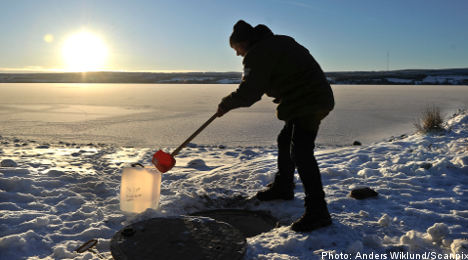Environmental authorities in Taiwan say they are planning to promote potty training for pigs to help curb water and waste pollution.
The Environmental Protection Administration made the pledge following the success of a pig farm in southern Taiwan, where the breeder started to  potty-train his 10,000 pigs in late 2009, it said.
potty-train his 10,000 pigs in late 2009, it said.
To keep his animals from defecating in nearby rivers, the breeder has established special "toilets" smeared with faeces and urine to attract the pigs, it said.
This reduced the amount of waste water by up to 80 per cent. As well as making the farm cleaner and less smelly, it also helped reduce illness among the pigs and boosted their fertility by 20 per cent, it added.
Taiwan has about six million pigs, most of them raised on farms in the centre and the south of the island.

.jpg) investigation. A property owner will also be contacted."
investigation. A property owner will also be contacted."(8).jpg) the restaurant was cut off due to a water-main break. The restaurant was shut down by the region that month, but reopened with a clean bill of health in August that year.
the restaurant was cut off due to a water-main break. The restaurant was shut down by the region that month, but reopened with a clean bill of health in August that year. revealed at the press conference (photo from
revealed at the press conference (photo from  Swedish news agency TT reported Tuesday
Swedish news agency TT reported Tuesday.jpg) It is feared 3,000 to 9,000 people may be infected.
It is feared 3,000 to 9,000 people may be infected. Alexander the Great (356–323 BC)
Alexander the Great (356–323 BC) Deseret News reports
Deseret News reports triggered a boil order appears to be receding.
triggered a boil order appears to be receding.